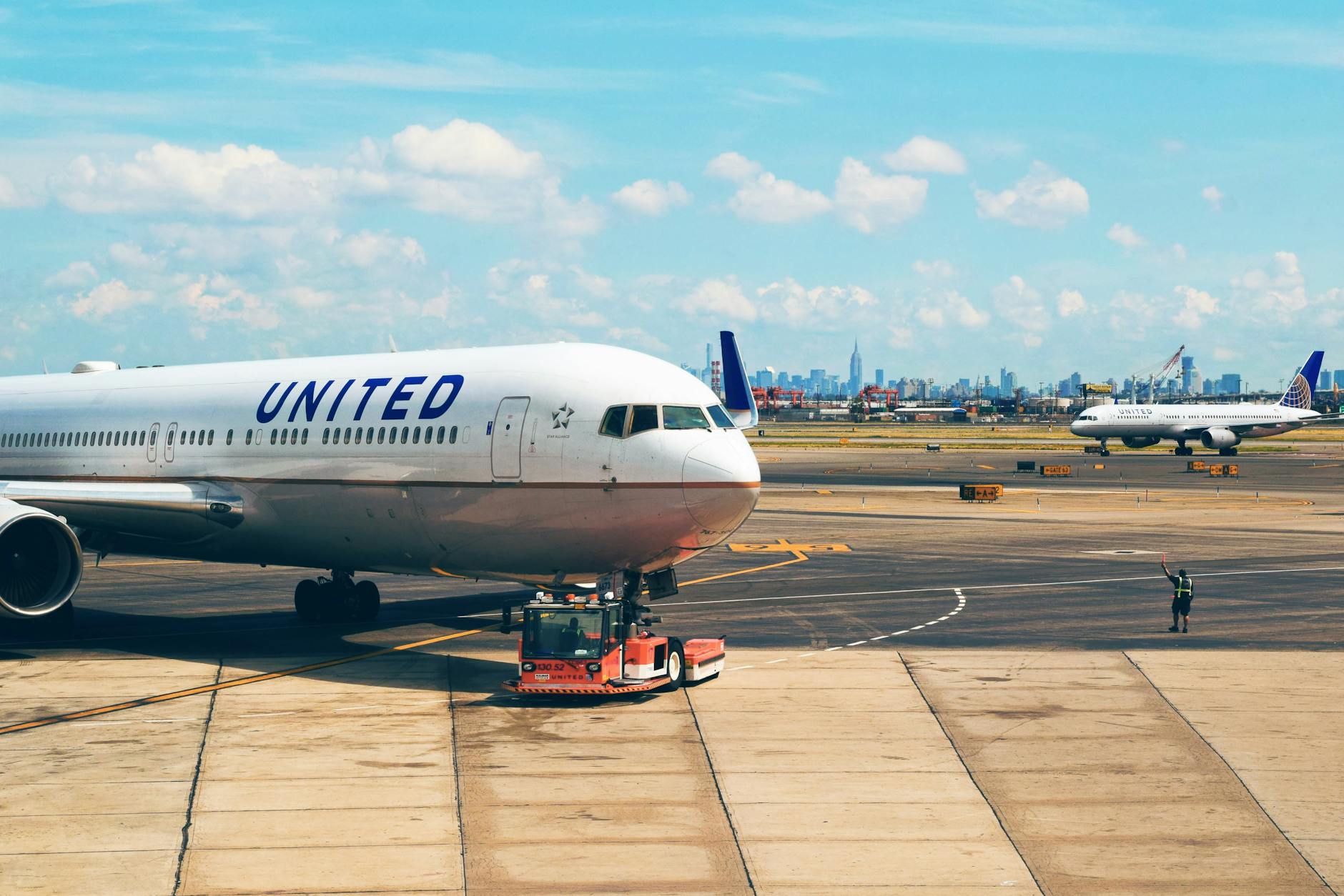“`html
Newark Airport Chaos: Stranded Passengers Due to ATC Shortage
Newark Liberty International Airport, one of the busiest hubs in the U.S., found itself in turmoil yet again this week. Late Wednesday, the airport issued a temporary ground stoppage—leaving passengers stranded and flights in disarray. The culprit? A critical shortage of air traffic controllers, the unsung heroes who keep our skies safe and schedules on track.
Air traffic controllers are the backbone of aviation, guiding thousands of flights daily with precision. But when staffing levels drop dangerously low, the entire system grinds to a halt. This latest incident raises urgent questions about the state of America’s aviation workforce—and whether enough is being done to prevent future disruptions.
The Crisis at Newark Airport
Wednesday night’s ground stoppage wasn’t just a minor hiccup—it was a full-blown operational meltdown. With flights frozen and gates clogged, travelers faced hours of uncertainty. Some missed connections; others slept on terminal floors. The scene was reminiscent of a crowded subway at rush hour, only with far higher stakes.
Details of the Incident
The FAA confirmed that Newark’s air traffic control (ATC) tower was operating with just three controllers during the stoppage—a shocking contrast to the 14 typically required for smooth operations. While exact numbers of affected flights remain unclear, delays rippled across major airlines, including United, JetBlue, and Delta.
Passengers took to social media to vent frustrations. One traveler tweeted, “Stuck at Newark with no updates. No staff, no answers. Is anyone even in control here?” Others reported waiting over six hours for rebooked flights, with limited access to food or accommodations.
Root Cause: Air Traffic Controller Shortage
The math is simple: fewer controllers mean slower operations and heightened risks. Controllers juggle multiple flights simultaneously, ensuring safe takeoffs, landings, and taxiing. Understaffing forces those on duty to work longer hours under intense pressure—a recipe for mistakes. “It’s like asking a chef to handle a full restaurant alone,” said an anonymous FAA insider. “Eventually, something burns.”
Why Are Air Traffic Controllers in Short Supply?
The Newark incident isn’t an isolated case—it’s symptomatic of a nationwide crisis. The U.S. aviation system is buckling under a perfect storm of staffing shortages, burnout, and chronic underfunding.
National Staffing Shortages
The FAA has struggled to fill ATC vacancies for years. A wave of retirements (nearly 1,200 controllers left in 2022 alone) has outpaced new hires. Training pipelines are sluggish; becoming a certified controller takes 2–4 years. Despite plans to recruit 1,500 controllers this year, experts say it’s too little, too late.
Workplace Stress and Burnout
Air traffic control is notoriously high-stress. Controllers make split-second decisions with lives at stake, often working overnight shifts. Fatigue is rampant. A 2023 DOT report found 60% of controllers felt “overwhelmed” by workload. “You’re mentally exhausted before your shift even ends,” one Newark controller admitted.
Budget and Funding Issues
Chronic underinvestment exacerbates the problem. Modernizing aging ATC systems and expanding training facilities requires funding Congress has been slow to approve. Meanwhile, airlines and passengers pay the price.
Impact on Passengers and Airlines
For travelers, the fallout is more than inconvenience—it’s financial and emotional strain. Families miss weddings; business travelers blow deadlines. Airlines, too, face cascading costs from cancellations and compensations.
Passenger Frustrations
Stranded passengers described chaotic scenes: overcrowded service desks, conflicting information, and scarce amenities. “I had to choose between buying a $30 sandwich or missing my rescheduled flight,” said one weary flyer. Others faced hefty hotel bills after overnight delays.
Airlines’ Response
Carriers scrambled to reroute flights, but options were limited. United, Newark’s dominant airline, issued meal vouchers and waivers—small comfort for those stuck for days. The financial hit? Analysts estimate Wednesday’s disruptions cost airlines over $2 million collectively.
Broader Implications for U.S. Aviation
Newark’s woes hint at a system in crisis. Near-misses at other understaffed airports (like JFK and Dallas) have surged 25% since 2021. Without intervention, experts warn of increased risks—or worse, a catastrophic accident.
Safety Concerns
Fewer controllers mean fewer eyes on crowded skies. The FAA reported 503 serious close calls in 2023, many tied to staffing gaps. “We’re playing Russian roulette with aviation safety,” said former NTSB chair Deborah Hersman.
Systemic Issues in Aviation
Similar stories echo nationwide. LaGuardia cut flights by 10% last summer due to ATC shortages; Chicago O’Hare saw 90-minute average delays in peak periods. The common thread? An overstretched, under-resourced system begging for reform.
What’s Being Done to Address the Shortage?
The FAA insists change is coming. Recruitment drives target colleges and veterans, while tech upgrades aim to ease workloads. But will it be enough?
FAA’s Recruitment Efforts
New “fast-track” training programs shave months off certification, and partnerships with schools like Embry-Riddle aim to funnel graduates into ATC jobs. Still, the agency admits full recovery could take until 2027.
Technological Solutions
NextGen, a $35 billion modernization effort, promises smarter routing and automation. AI tools may eventually handle routine tasks, freeing controllers for complex decisions. Yet critics argue tech can’t replace human judgment—or solve today’s shortages.
Tips for Passengers Affected by ATC Delays
Until fixes take hold, travelers must brace for turbulence. A little preparation can soften the blow.
- Check flight statuses hourly—delays can snowball fast.
- Pack patience (and snacks)—assume 2–3 extra hours at airports.
- Know your rights—U.S. airlines must refund cancellations or cover overnight stays if delays are their fault.
Conclusion
Newark’s latest chaos is a wake-up call. The air traffic controller shortage isn’t just disrupting travel—it’s gambling with safety. While the FAA’s efforts are a start, passengers deserve faster action. For now, the skies remain uncertain. Will 2024 bring relief, or more gridlock?
Have you been affected by recent flight delays? Share your story in the comments.
Source: NY Post – US News
“`













One thought on “Newark Airport Chaos: Stranded Passengers Due to ATC Shortage”